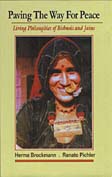
European Vegetarian and Animal News Alliance (EVANA)
en de fr pt es
it nl ro sl sq sv
 |
European Vegetarian and Animal News Alliance (EVANA) |
Select language: en de fr pt es it nl ro sl sq sv |
|---|
|
Book recommendation: 
Join us on  Facebook! RSS engl. RSS all lang. Donation to EVANA. |
Malaysia: NO to monkey exportSubjecting our wildlife to a life of misery and torture under the most horrendous conditions undergoing tests for vaccines are both unthinkable and unacceptable17 August 2007 Sahabat Alam Malaysia (SAM) has received word from the International Primate Protection League (IPPL) that the Ministry of Natural Resources and the Environment has approved the sale of long tailed and pig tailed macaques to China preferably for breeding purposes. The issue only came to light recently when news of export was highlighted in the Zoo Biology List. The Zoo list stated “that a well known supplier had approached the Minister for a license to export monkeys to China and it seems that the Minister has given approval.” At the same time SAM had received news report from the South China Morning Post of a booming monkey breeding business on China ’s mainland as demand from US bio-defence programmes rises. Domestic demand is also on the rise as more and more overseas laboratories are setting up research facilities on the mainland where there is less interference from animal rights activists. The biggest primate breeding centres in Guangxi, a region that produces half of the nation’s monkeys used for experiments is owned by Ms Xie. Known as the Guangxi Weimei Bio-Tech Company it started with fewer than 100 crab-eating macaques four years ago and now has more than 12 000. A huge expansion project covering the size of 31 soccer fields, when completed next year, will be home to 20 000 monkeys. Apart from the Weimei breeding centre there has been a growing number of farms on the mainland, mostly found in Guangxi and Guangdong for raising monkeys. With support by mainland governments of various levels and heavily funded by profit seeking private investors, the scale of the primate farms on the mainland has tripled within a decade stimulated by a soaring demand from US bio-defence programmes. Last year Guangxi’s eight registered farms housed about 40 00 monkeys with a significant higher number this year because of expanding farms, and several new breeding centres are making applications for production licences. The need for non-human primates is expected to grow enormously as vaccines and therapies against biological weapons and emerging diseases are being developed by the US . The Convention on International Trade in Endangered Species (CITES) listed the number of crab-eating macaques imported by the US each year rose from 3 266 to 12 878 over the same period. The price of a monkey also rose on the international market from 1 500 yuan to 20 000 yuan. The monkeys in Guangxi are also sold to the European Union, Japan, South Korea and Taiwan. SAM recalled a statement by the Parliamentary Secretary to the Ministry of Natural Resources and the Environment Datuk Azmi Miah who proposed that monkeys be sent to Japan, Korea, Taiwan and Hong Kong for either their exotic meats or as pets. Exporting our macaques to these countries for either as food or as pets could be a guise for sending them to horrifying deaths conducted under the US bio-defence programmes. Subjecting our wildlife to a life of misery and torture under the most horrendous conditions undergoing tests for vaccines and therapies against biological weapons and emerging diseases is both unthinkable and unacceptable. So far no study has been carried out to verify an increase in population for the long and short tailed macaques in Malaysia. So how can there be an increase in population numbers at the high rate of deforestation and loss of food source? The Ministry and the Wildlife department should be reminded of past incidents of use and abuse of our long tailed and pig tailed macaques by the US in the early 80s, where they are subjected to tortures such as having weights dropped on their spines, irradiated with super lethal doses of radiation, undergo neutron bomb testing and use on biological warfare agents. These and other abuses at military research centres and institutions of higher learning drew a storm of protest from NGOs and international wildlife groups leading to a ban on the monkey export. The Ministry should therefore take the lead in withdrawing the export licence to the wildlife supplier. Past experience should be a lesson enough. After all how much will Malaysia earn from the exports? The government should show concern for wildlife in this country and to continue imposing a ban on the export of monkeys. S M Mohd Idris President Sahabat Alam Malaysia 21 Lintang Delima 15 11700 Penang Tel: 04-6596930 Fax: 04-6596931
Date: 2007-08-17
|
|
|||||||||||||||||